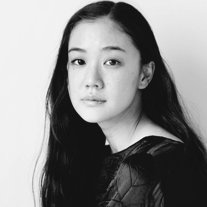Fresh take on a (THE) controversial figure
Akechi Mitsuhide is possibly the most controversial but also mysterious figure of Sengoku era. "Why did he do it?" - we'll never know. As often the case in history, there are usually no heroes or villains, just winners and losers, and winners write history. Imagine, if Mitsuhide beat Toyotomi Hideyoshi at the Battle of Yamazaki and became shogun, he would have become "one who deposed of the bloodthirsty (true) dictator Nobunaga". But that is not what happened, and Mitsuhide is forever known as the betrayer of his lord. Kirin provides a fresh take on this figure (perhaps a little too idealistic for my liking, but that's a minor gripe), one who wants to uphold the bakufu, seek peace, and definitely did not approve of Nobunaga's various violent shenanigans. I particularly enjoyed the arcs of Saito Dosan, Ashikaga Yoshiteru (and to a lesser extent, Yoshiaki), and Matsunaga Hisahide. These are characters who haven't been provided with enough screen time in previous taiga (as far as the ones I've watched), and it's great to see their stories play out in the background.
Mitsuhide's love arcs are minimal, as per usual taiga standard, but his wife Hiroko as a real historical figure was known to be a devoted wife, and he was equally devoted to her. It was refreshing to see a general/daimyo appreciate his wife in the modern sense of partnership and not just a political tool/baby popping machine.
Kirin spends a lot of time on fictional characters of the lay people class - doctors, merchants, performers. These parts can drag a little, but I really enjoyed watching "the real world" outside of major historical Sengoku figures. Koma's role was involved in way too many important things/with way too many important people and that irked me a little, but overall I didn't mind the ordinary citizens' role here. In history they were probably used as communicators/spies and we'll never know their real names or identities because of the nature of their work (like Kikumaru), but that doesn't mean they didn't exist/didn't play pivotal roles in these conflicts.
Acting was top notch. I discovered Hasegawa Hiroki via Antihero (another great watch) but became a fan via Kirin. His Mitsuhide is always dignified but also often conflicted, as I suspect many people were in that time - where the wrong course of action means death, but it was always difficult to know what's right or wrong, and every decision is a wager. Mukai Osamu as Ashikaga Yoshiteru showed a beautifully tragic figure who had ambition, desire to better the world, ability (he was a renown swordsman), but was born into the wrong family at the wrong time. Motoki Masahiro is enigmatic and a powerful screen presence; his Saito Dosan is clearly a controversial figure, but is shown here to be very honest with himself and knows who he is/upholds his integrity (or what he thinks is his integrity) and proud of his humble background. These were my favorite characters of the series, but kudos to others like Yoshida Kotaro as the cunning but strangely philosophical Matsunaga Hisahide, and despite not too much screen time, Ono Machiko is enchanting as always as the mysterious but influential Iroha Dayu. I must admit I had a hard time imagining Sometani Shota as Nobunaga, but his Nobunaga had a good course of transformation, to a brash but idealistic youth, to bloodthirsty dictator far removed from reality. I'm rewatching Gunshi Kanbei right now and must say, I actually prefer his version of Nobunaga to Eguchi Yosuke's Nobunaga, who's far more stoic and less interesting.
Kirin ga kuru is a bit more controversial than other taigas, but that's also what makes it special. Others think it's "revisionist history", I simply think of it as, everyone has a story and perspective. When you look at it from Mitsuhide's perspective, this is his story.
Mitsuhide's love arcs are minimal, as per usual taiga standard, but his wife Hiroko as a real historical figure was known to be a devoted wife, and he was equally devoted to her. It was refreshing to see a general/daimyo appreciate his wife in the modern sense of partnership and not just a political tool/baby popping machine.
Kirin spends a lot of time on fictional characters of the lay people class - doctors, merchants, performers. These parts can drag a little, but I really enjoyed watching "the real world" outside of major historical Sengoku figures. Koma's role was involved in way too many important things/with way too many important people and that irked me a little, but overall I didn't mind the ordinary citizens' role here. In history they were probably used as communicators/spies and we'll never know their real names or identities because of the nature of their work (like Kikumaru), but that doesn't mean they didn't exist/didn't play pivotal roles in these conflicts.
Acting was top notch. I discovered Hasegawa Hiroki via Antihero (another great watch) but became a fan via Kirin. His Mitsuhide is always dignified but also often conflicted, as I suspect many people were in that time - where the wrong course of action means death, but it was always difficult to know what's right or wrong, and every decision is a wager. Mukai Osamu as Ashikaga Yoshiteru showed a beautifully tragic figure who had ambition, desire to better the world, ability (he was a renown swordsman), but was born into the wrong family at the wrong time. Motoki Masahiro is enigmatic and a powerful screen presence; his Saito Dosan is clearly a controversial figure, but is shown here to be very honest with himself and knows who he is/upholds his integrity (or what he thinks is his integrity) and proud of his humble background. These were my favorite characters of the series, but kudos to others like Yoshida Kotaro as the cunning but strangely philosophical Matsunaga Hisahide, and despite not too much screen time, Ono Machiko is enchanting as always as the mysterious but influential Iroha Dayu. I must admit I had a hard time imagining Sometani Shota as Nobunaga, but his Nobunaga had a good course of transformation, to a brash but idealistic youth, to bloodthirsty dictator far removed from reality. I'm rewatching Gunshi Kanbei right now and must say, I actually prefer his version of Nobunaga to Eguchi Yosuke's Nobunaga, who's far more stoic and less interesting.
Kirin ga kuru is a bit more controversial than other taigas, but that's also what makes it special. Others think it's "revisionist history", I simply think of it as, everyone has a story and perspective. When you look at it from Mitsuhide's perspective, this is his story.
Esta resenha foi útil para você?





